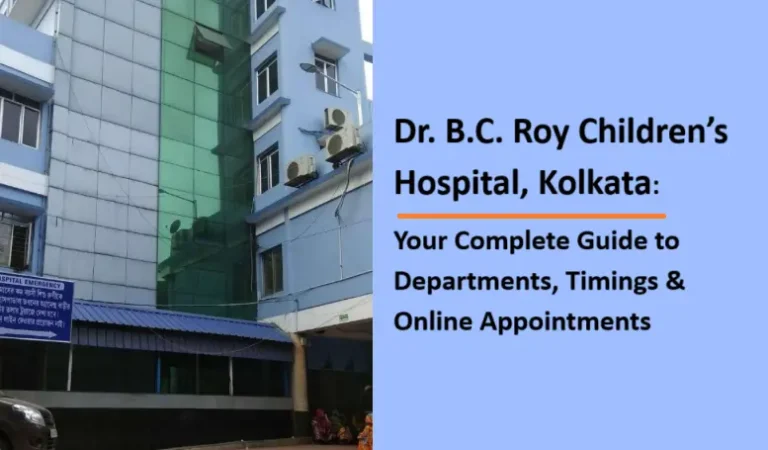

The “health sector” has become one of the largest and fastest-growing sectors of the Indian economy, creating immense potential for young individuals to explore new professional career paths. State governments need to collaborate with reputed international and national academic institutions, research institutes, development partners, and eminent experts to advance the discussion towards creating a long-term impact on policy approaches for the public health sector. To strengthen the public health sector in the country, state governments need to focus on the following five policy-focused areas:
Five policy-focused Areas:
Public health management cadre:
The National Health Policy 2017 proposes the establishment of a Public Health Management Cadre in all states. All the states have an extensive network of public health institutions. States should develop an appropriate career structure and recruitment policy to attract young and talented professionals to manage the public health care system, including medical college hospitals, district hospitals, sub-district hospitals, community health centres, first referral units (FRUs) and other public health institutions. Trained and skilled hospital and health management professionals will effectively manage the state’s public health care system. State governments may broadly divide the health management cadre into two parts – the health management cadre and the hospital management cadre – to move the discussion towards creating a long-term impact on policy implementation in the public health sector.
Health management cadre professionals may be suitable for various positions in the State Directorate of Medical, Health and Family Welfare Services, regional-level Joint Director Offices, district-level Chief Medical and Health Officer Offices and block-level health offices. Similarly, Hospital Management Cadre professionals may be posted in public hospitals, including medical college hospitals, district hospitals, sub-district hospitals, and public health institutions, such as community health centres, primary health centres, first referral units, etc.
Management of public health institutions is essential for improving the performance of health systems. Management includes hospital planning, supply chain management, logistics management, health insurance management, hospital construction and infrastructure management, laboratory management, emergency service management, operations management, quality management, equipment management, disaster management, ambulance service management, bio-medical waste management, promotion and communication of health services, proper budget preparation, monitoring of national health programmes, and use of appropriate technologies for managing the health system.
Human resource development and leadership development:
The National Health Policy 2017 recognises that human resource development and management are essential for strengthening the health system. The availability of qualified and trained doctors and paramedical staff is vital to enhance the effectiveness of health services. For this, as per the Indian Public Health Standards (IPHS), the availability of an adequate number of specialists, medical officers, health managers, hospital managers, and paramedical staff should be ensured in public health institutions – district hospitals, sub-district hospitals, community health centres, primary health centres, and sub-health centres in all districts, especially in those districts which have been identified as ‘high priority districts’.
Medical and paramedical education should be integrated with the health care system to make the health care system effective. This will not limit the students at medical colleges and nursing schools to theoretical knowledge. Still, they will learn and work in public health institutions through personal training in real situations in district hospitals, sub-district hospitals, community health centres, and primary health centres. This will increase their operational efficiency, and they will be able to provide better health services in future. The performance of the healthcare system will be effective only when the right person is employed at the right place, with the right skills and appropriate motivation. This requires the development of a motivating work environment and an appropriate incentive system.
States should invest in and provide regular in-service training for physicians, nursing staff and technical assistants. This includes clinical training for physicians, nursing services training for nursing staff and skill-development training for technical assistants (radiographers, lab technicians, physiotherapists, pharmacists, audiologists, optometrists, occupational therapists, etc.). States should focus on multi-skill development with various skill training to make human resources more efficient when deployed in more remote hospitals.
At the same time, in-service professionals working in the management and administration of the public health system should get opportunities for leadership and management training. This should include state-level officers such as directors, deputy directors, joint directors, district-level officers such as chief medical and health officers, deputy chief medical and health officers and block health officers. These officers are essential pillars of the state’s healthcare system, and the successful implementation of various national health programmes depends on their management and administrative skills. States should also pay serious attention to officers who manage medical college hospitals and district hospitals, including deputy superintendents and heads of nursing services. Apart from these officers, senior specialists, junior specialists, senior medical officers, medical officers of district hospitals, sub-district hospitals, community health centres, and primary health centres who are not professionally trained in management should get opportunities for special training and professional development courses to enhance leadership and management capacity. This will improve the management and administrative level of health services, leading to better healthcare services for the public.
The post of community health officer (CHO) is also critical. It is a vital link between the health system and the community, strengthening community participation and health initiatives. Efforts are needed to train community health officers in leadership and management to achieve better results at the village level. Many other state governments have initiated leadership and management training to achieve health policy goals. States should also focus on developing human resources and capacity building by appropriately allocating resources.
Digital health technology ecosystem:
Recognising the critical role of technology (e-health, m-health, cloud, Internet of Things, wearables, etc.) in healthcare services, the Government of India is emphasising promoting the digital health ecosystem in the country. Ayushman Bharat Digital Mission was launched in 2021 by the Prime Minister to connect digital health solutions of hospitals across the country. Ayushman Bharat Digital Mission will not only simplify the processes of hospitals but will also increase the ease of living. With the implementation of this scheme, old medical records cannot be lost as every record will be stored digitally. Ayushman Bharat Digital Mission aims to develop the backbone for the country’s integrated digital health infrastructure. It will bridge the existing gap between various stakeholders of the healthcare ecosystem through digital means.
States should also encourage, develop and implement digital health across the state to ensure sustainable and holistic healthcare services. Public health institutions such as medical college hospitals, district hospitals, sub-district hospitals, community health centres, and primary health centres should be integrated with digital technology. This will improve healthcare services, referral systems, and patient-centred care. Digital technology will enhance the efficiency and outcomes of the health system.
States should develop health information systems that meet the needs of all, make functioning more transparent, and deliver better services to citizens. Digital technology will make services such as e-health, m-health, and wearables more effective. States should promote tele-consultation, connecting medical college hospitals to district hospitals, sub-district hospitals, community health centres, and primary health centres, and facilitate consultation with specialist doctors. Digital technology will enable preventive, promotive, and curative health information to reach every household, strengthening the healthcare system.
Health systems research:
According to the National Health Policy 2017, research is key to upgrading the health system. Health is a sector where discoveries and advancements are made every day. Hence, it is essential to invest more in health research. Currently, states have not allocated adequate resources for public health systems research. To move in this direction, states should work with health management research institutes to generate new knowledge to strengthen the public health system. There is a need to generate evidence through research to make different medical systems part of a common knowledge source and mainstream them. This will include providing informed choices to patients, creating a conducive environment for medical systems, establishing an effective regulatory regime and encouraging collaboration and consultation among these systems. To improve the health sector, the state should strengthen publicly funded health management research, hospital management research, national health program management and implementation research, disease diagnosis and pharmacological research. This will increase the effectiveness of national health programs and provide better direction to policy-making.
States should support research in medical product innovation, such as point-of-care diagnostics, advanced technologies and the Internet of Things. Research on social factors related to health should be promoted, as well as health system issues that have been neglected so far, such as the cost of health services, effective cost-planning, urban health, disability, the health of the elderly and transgender people. In addition, basic research should also be encouraged in key areas relevant to health, such as physiology, biochemistry, pharmacology, microbiology, pathology, molecular sciences and cell sciences. In addition, drug research on serious diseases such as TB, HIV/AIDS and malaria should be adequately promoted on a priority basis.
Collaboration and partnerships:
Collaboration and partnerships are essential for strengthening the public health system, and they should be implemented on a large scale in the states. Given the critical role of the private sector in the state, it is essential that the state governments consider possibilities for developing partnership models with the for-profit and non-profit private sector. This will improve the delivery of healthcare.
The resources and capabilities of private hospitals and diagnostic centres can be better utilised. In addition, non-governmental and voluntary organisations can be actively involved in spreading awareness about health. These organisations can conduct public awareness campaigns on essential topics such as worker health, blood disorders, adolescent health, safe health practices, accident prevention, micronutrient adequacy, anti-microbial resistance, screening of children and pregnant women and mental problems associated with technology misuse. The State should launch new initiatives to involve the private sector, such as establishing collaborations for health services and awareness campaigns in nearby schools, colonies, slums, tribal areas and backward areas. This will not only make healthcare accessible but will also increase health awareness among the socially and economically weaker sections.
In addition, the state should collaborate with various public and private educational institutions, academic institutions and health research institutes to conduct education, research, training and executive professional courses to enhance the capacity of human resources working in the healthcare system. This will develop the necessary skills and capacity in the healthcare sector, which will help in better service delivery.





